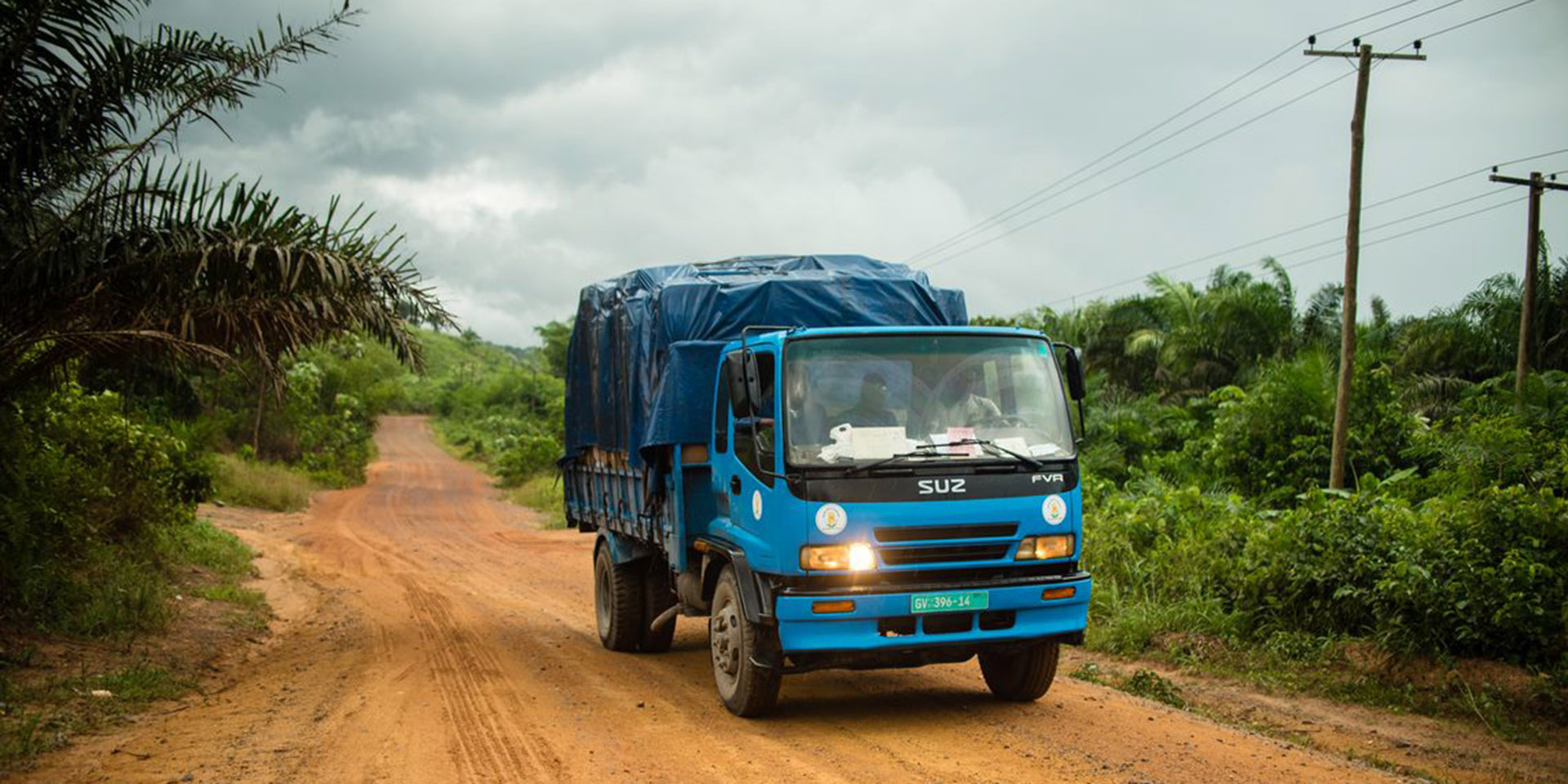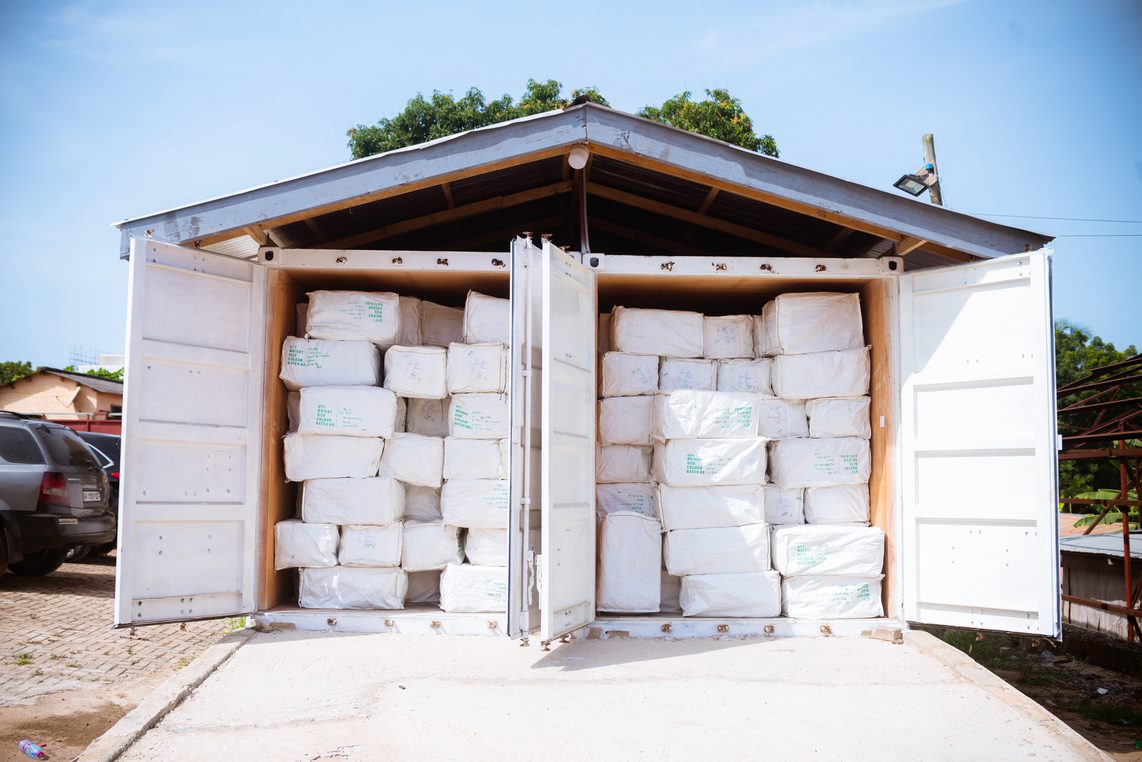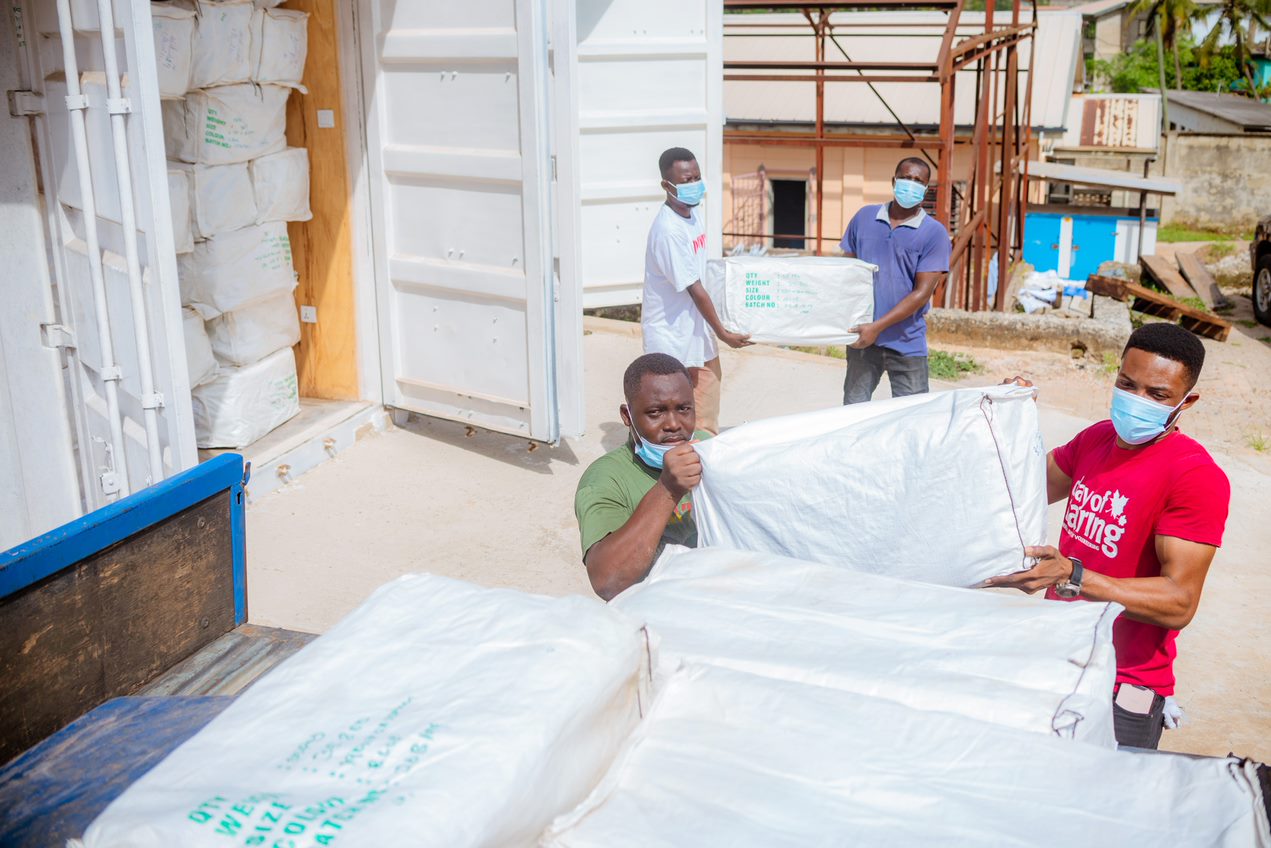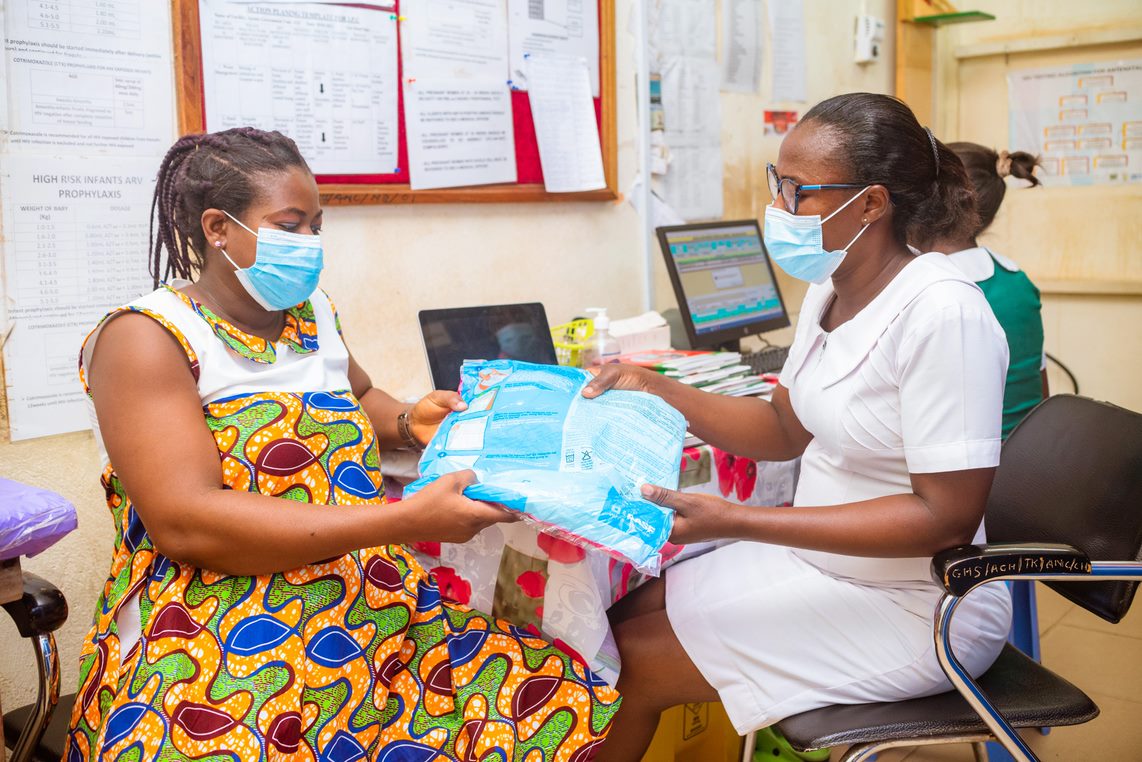
As the saying goes, prevention is better than cure! If everyone slept under a long-lasting insecticide-treated net (LLIN), we would end malaria faster. But how can we encourage the use of LLINs to protect people from malaria-carrying mosquitoes if some communities lack access to the nets?
To promote access to mosquito nets, the USAID Global Health Supply Chain Program-Procurement Supply Management (GHSC-PSM) project, with support from the U.S. President’s Malaria Initiative (PMI), implements the last-mile delivery program to ensure that no community is left out. The last-mile delivery program delivers LLINs to the health facilities in the most remote communities, making them readily available for distribution as far as needed. When regular cars cannot reach a location, GHSC-PSM contracts third-party logistic firms to do the job---these local transporters use their knowledge of the terrain and road network to beat the odds and carry the nets to their destination. In Ghana, through the last mile delivery program, mothers, and young children in the Eastern, Northern, Western, and Western North, Oti, and Volta Regions have ready access to mosquito nets, as the health facilities now have an uninterrupted supply to distribute to those in need.
Eunice, a resident of Volta, is among the many mothers who continue to benefit from this program, and she enjoys sleeping under a mosquito net for several reasons. As a seamstress, she relies on dressmaking for her livelihood, and not sleeping under a mosquito net increases her family's risk of contracting malaria and losing money. The thought of falling sick or caring for a sick child is something she wants to avoid because it will affect the number of clothes she can make and, consequently, her source of income.
"As a seamstress, I cannot afford to disappoint my clients. Sleeping in the nets is peaceful, my daughter is protected from malaria, and I get to focus on my work and satisfy my clients" - Eunice
USAID Funded LLIN Storage Container at Western Regional Medical Stores
RMS staff loading LLINs into the region's truck
As a core prevention tool, LLINs are essential in reducing the global malaria burden. They provide personal protection from malaria infection and reinfection and thus reduce malaria illness, severe disease, and death in endemic regions. According to the Centers for Disease Control and Prevention (CDC), in community-wide trials in several African settings, LLINs reduced the death of children under five years from all causes by about 20 percent (2019).
"Net distribution is very important, considering the endemic nature of malaria in Ghana. The distribution of nets has helped parents, and I am a direct beneficiary of the program. Previously my children used to have many malaria episodes. Still, thankfully, because of the bed nets, I have not treated any of my children of malaria in the past year, and I believe the bed nets have contributed to that”, said the father of two.
In line with Ghana’s National Malaria Strategic Plan (2021-2025), which aims to ensure access to life-saving malaria interventions for disadvantaged and hard-to-reach communities, GHSC-PSM facilitates the continuous availability of LLINs in health facilities in Ghana to protect pregnant women and children under five years.
Nurse at Teberebie Health Centre hands over LLINs to client
Before the last-mile delivery program, the National Malaria Elimination Program (NMEP) transported nets from central locations to the districts so that health facilities could pick up their allocated quantities. Though this helped in stocking the health facilities, there was often a long waiting period for the LLINs to arrive at the health facilities as some of them lacked the needed resources to pick the nets up on time. In addition, there was limited storage, so a limited quantity of LLINs could be stored and delivered to health facilities. Now, through the last mile delivery program, USAID, through GHSC-PSM, procured and supported the NMEP to install prefabricated LLIN storage containers in several regions. By June 2022, 136,800 LLINs were distributed to health facilities in Western and Western North Regions, which will protect around 273,600 people against malaria.
"The provision of the LLIN containers for storing LLINs has helped the Western Regional Medical Stores. We used to have storage challenges compounded by COVID-19. Getting storage spaces for medicines and COVID-19 items became a huge challenge so without the storage containers, integrating the LLINs into the last mile delivery program would have been very difficult. The provision of the LLIN containers has helped ease the congestion, so Regional Medical Stores (RMS) has enough space to store LLINs, which has helped maintain supply to health facilities.” - Issah.
PMI’s funding efforts are significantly impacting the Eastern, Oti, Volta, Western and Western North Regions. Through the last mile delivery program, GHSC-PSM works with the Ghanaian Government and Global Fund to Fight AIDS, Tuberculosis and Malaria, to protect the population from malaria infections. Although malaria remains a threat, the uninterrupted supply of commodities like LLIN can make a significant difference. The plan is to scale up this program to cover other regions in Ghana to reduce malaria incidence and ensure that many more people enjoy healthier and more productive lives.


